
Not all the movies that roam the net do so illegally, we can find many movies that can be downloaded legally and for free. That is because many of the films are not copyrighted, something that ends up happening over time, so most of the tapes that we can find are from classic cinema, although there are also more modern films such as the Ed Wood films or the horror classic 'Night of the Living Dead'. One of the best places to find these types of films is the website archive.org, where can we find multitude of non-copyrighted material, not only movies, but also photos or music. Any tape we find in this place is royalty free and we can get hold of the material from there or anywhere else on the web, it is necessary to clarify this since in archive.org we will only find original versions without subtitles. In the following list you will find 25 very remarkable titles, and although we can find many more quality royalty-free movies, these are of the most remarkable in the history of cinema.
'The birth of a nation'
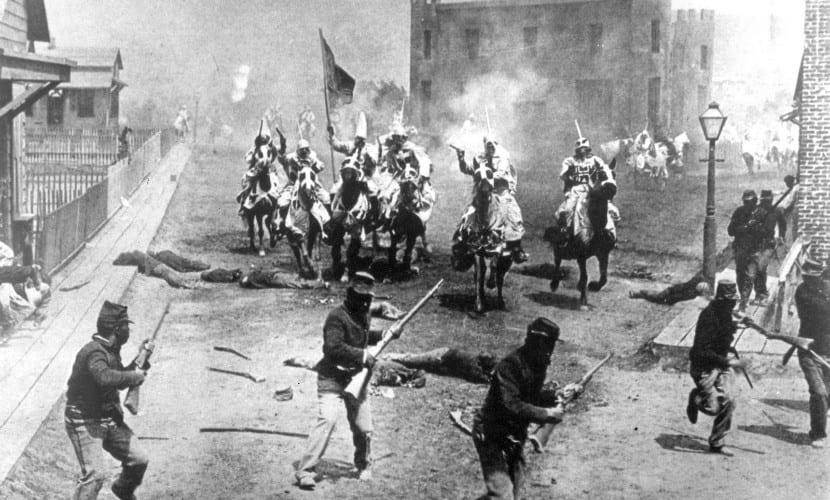
'The Birth of a Nation' by David W. Griffith (1915) - United States And how could it be otherwise, the first film to be noted is 'The Birth of a Nation' by David W. Griffith, the film with which cinematographic language begins. 'The Birth of a Nation' is a silent film classic that focuses on one of the most important episodes in the United States, the civil War. Undoubtedly one of the best and most important films in the history of cinema despite its marked racist tone due to the glorification of the Ku Klux Klan.
'The vampires'

'Les vampires' by Louis Feuillade (1915) - France More than a movie, 'The vampires' is about the first series in history. Seven hours of footage that in its day were separated into 10 projections. France, after winning the invention of the cinema, did not want to lose ground against the United States and proposed interesting films like this one that tells the story of a Paris panicked by an organized gang of criminals calling themselves "The Vampires."
'Intolerance'

'Intolerance' by David W. Griffith (1916) - United States Among the royalty-free films that we can find on the web, we find practically all of David W. Griffith's films, all of them interesting but if it is worth highlighting one more that must be 'Intolerance', a key film to understand at the time what parallel editing was. 'Intolerance' tells four stories at the same time that show the struggle of love through the ages. The bloody strikes of 1912 in the United States, the fall of Babylon, the Passion of Christ and the night of Saint Bartholomew are the four scenarios in which the director moves.
'The Cabinet of Dr. Caligari'
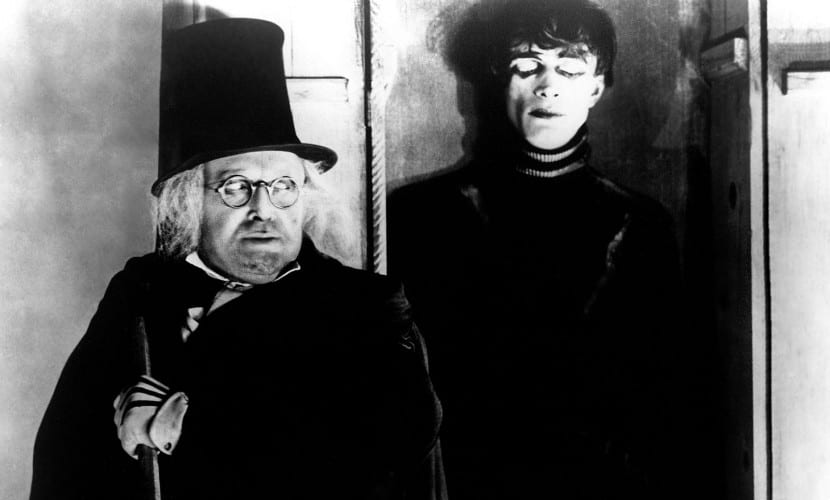
'Das Kabinett des Dr. Caligari' by Robert Wiene (1920) - Germany The 20s stood out in the cinematographic field especially for the german expressionism. 'The Cabinet of Dr. Caligari' is considered the inaugural film of this movement and, of course, one of the essential movies for any movie buff worth it. Heralding the fascist rise in Germany, Robert Wiene's film tells the story of Alan, who goes together with his friend Francis to see the spectacle of Dr. Caligari, a kind of magician with a sleepwalking assistant who announces to Alan that he will only live until the next dawn.
'Nosferatu'
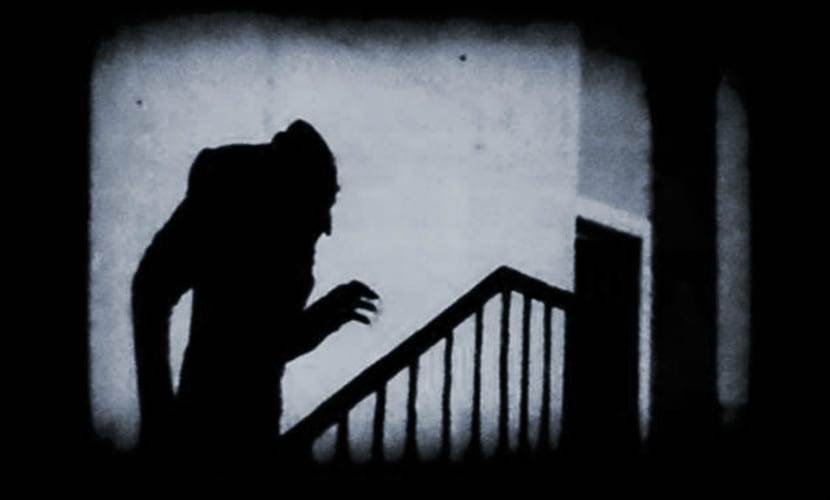
'Nosferatu, eine Symphonie des Grauens' by FW Murnau (1922) - Germany And if 'The Cabinet of Doctor Caligari' is considered the first film of German expressionism, 'Nosferatu' is the masterpiece of this movement. FW Murnau is one of the essentials and 'Nosferatu' one of his best films. An adaptation of Bram Stoker's 'Dracula' for which no royalties were paid, hence the work's name change. Years after its release, Stoker's widow won the lawsuit and got copies of the film burned, but it has been preserved thanks to negatives distributed around the world.
'Häxan: witchcraft through the ages'

Benjamin Christensen's 'Häxan' (1922) - Denmark The United States, France, Germany and the Soviet Union dominated the world of cinema during the 20s, but celluloid was also being worked in other, somewhat more remote places. 'Häxan: witchcraft through the ages' is one of those rarities that have gone down in film history, despite being of Danish production. The film, halfway between documentary and fiction, tries to discover the relationship between the customs related to witchcraft of the men of the Middle Ages and the problems of the moment.
'Avarice'
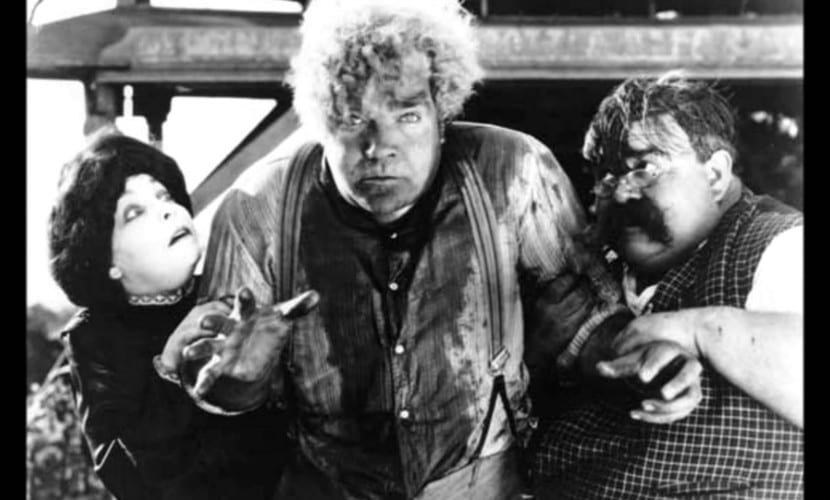
'Greed' by Erich von Stroheim (1924) - United States 'Greed' is undoubtedly the masterpiece of one of the cursed directors of history, Erich von Stroheim. A director determined to make a feature film, something that ended up taking its toll. Of 'Avaricia' four hours are conserved, although at the time the censored version of two and a half hours was screened. The story revolves around a woman who marries a suspected dentist after winning the lottery and abandoning her boyfriend. The one who was her partner denounces her husband for exercising without a license, so the couple begins to live with difficulties, which causes the woman to start saving compulsively.
'The thief of Baghdad'
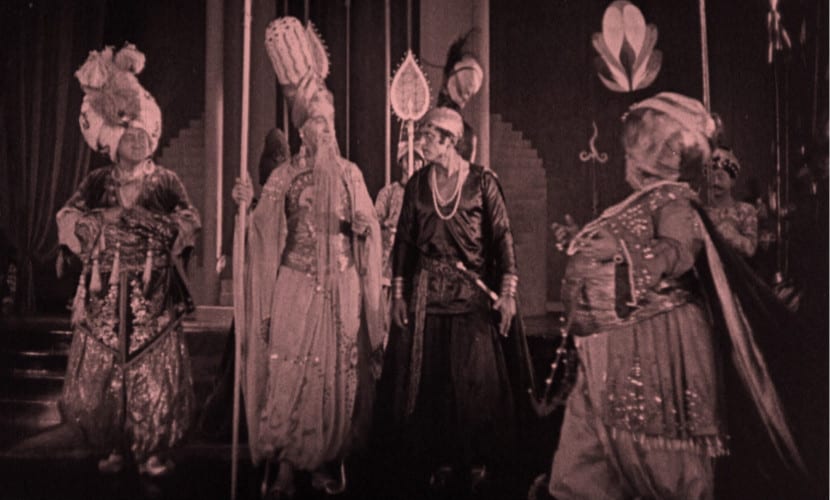
'The Thief of Bagdad' by Raoul Walsh (1924) - United States One of the most important directors of Hollywood sound and classic cinema, Raoul Walsh began his career in the world. "The thief of Baghdad" is undoubtedly his most outstanding film of this period. A movie about the adaptation of 'The Thousand and One Nights' by the protagonist of the film himself, Douglas Fairbanks. A magical story of flying carpets, geniuses and evil spells.
'The Battleship Potemkin'
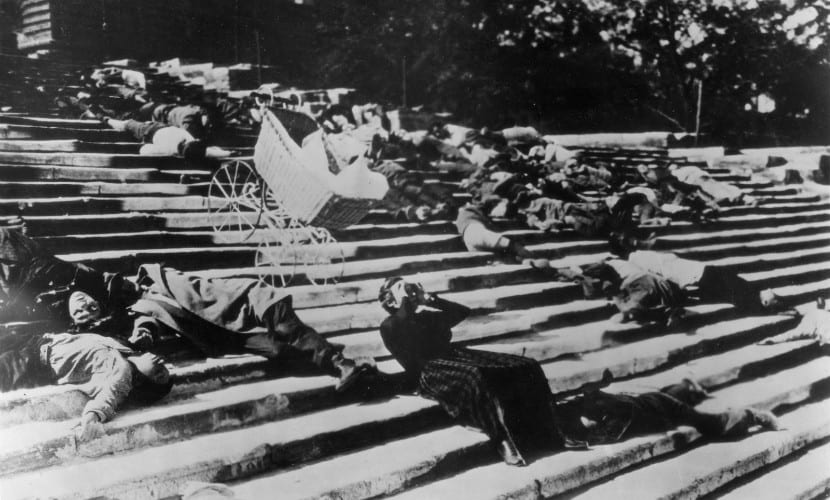
'Bronenosets Potyomkin' by Sergei M. Eisenstein (1925) - Soviet Union While in the United States the path of cinema took a more classical aspect, in the Soviet Union, the aim was to experiment especially with montage and that is more than evident in 'The Battleship Potemkin'. The film is based on the events that occurred in 1905 when the crew of the battleship Prince Potemkin of Taurida, tired of humiliating treatment by their officers, mounted a mutiny that ended in revolution in Odessa and all of Russia.
'The machinist of the general'

'The General' by Buster Keaton and Clyde Bruckman (1926) - United States Another of the filmmakers to take into account during the silent phase of the United States is Buster Keaton, one of the kings of comedy both in front of and behind the cameras like other contemporaries like Charles Chaplin. 'The general's machinist' is probably his most famous work and tells the story of Johnny Gray, a machinist with two great loves, a girl and a locomotive. During the Civil War, a northern commando kidnaps both of them and he does not hesitate to pursue them to prove his worth.
'Berlin, symphony of a city'
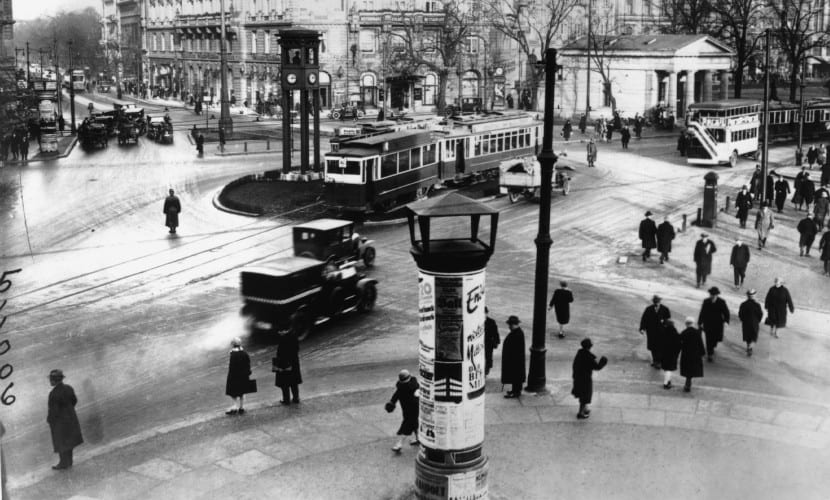
'Berlin - Die Symphonie der Großstadt' by Walter Ruttmann (1927) - Germany Walter Ruttman produced the most outstanding German film of the time outside of German Expressionism. 'Berlin, symphony of a city' is an experimental documentary showing life for a day in the German capital. The film featured the best German cinematographers of the time.
'Metropolis'
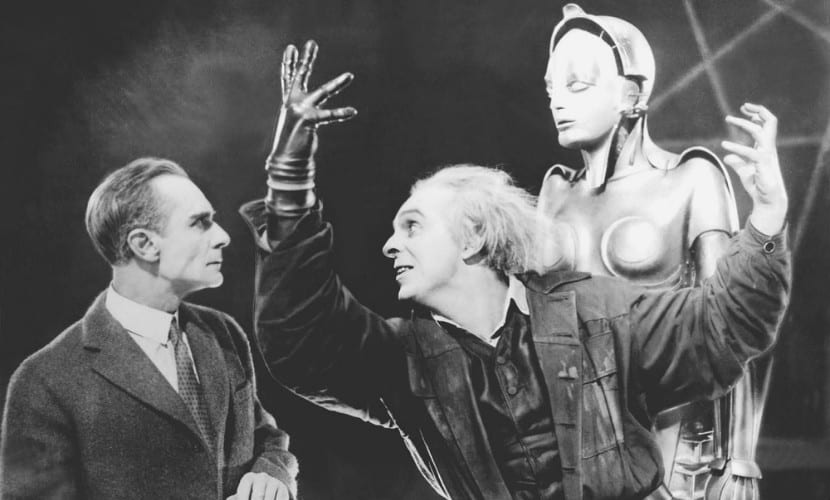
Fritz Lang's 'Metropolis' (1927) - Germany The 20s brought us the best batch of German directors of all time, another of the outstanding ones is Fritz Lang, who began his career in his native country to later settle in the United States fleeing of Nazism. 'Metropolis' is one of his most outstanding films of his time in Germany. The film is a futuristic vision of the divide between rich and poor and how they can rebel against having terrible working conditions.
'October'
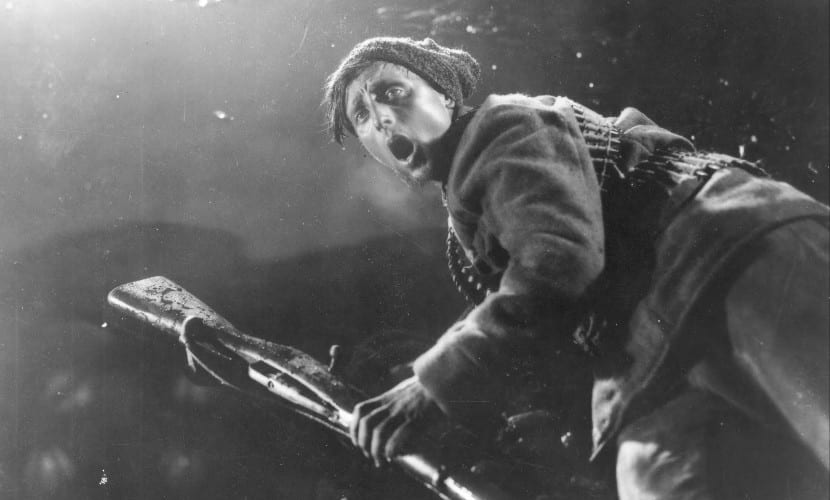
'Octyabr' by Sergei M. Eisenstein and Grigori Aleksandrov (1928) - Soviet Union Another of Sergei M. Einsenstein's films that should be highlighted is 'October'. True to experimentation with montage and pamphlet cinema of the Soviet Union of the 20s, the Soviet director shoots 'October', a film in which he continues to work on the montage ideas that he pointed out in 'Battleship Potemkin'. 'October' tells of the events that occurred from February to October 1917.
'The man with the camera'
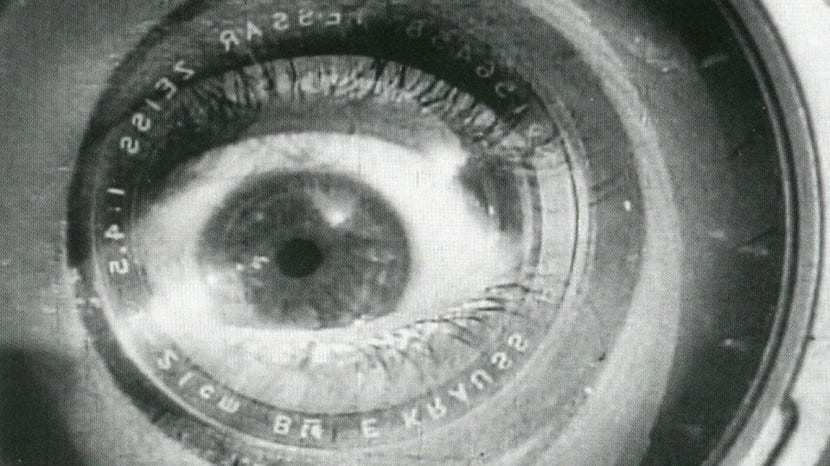
'Chelovek s kino-apparatom' by Dziga Vertov Experimentation in Soviet cinema reached its peak with Dziga Vertov, documentary filmmaker who worked on the line of 'Berlin, symphony of a city' showing a day in a Russian city. A practically pointillism portrait in which the sum of brushstrokes end up showing life in the Soviet Union, yes, always from the point of view of its author.
'The blue angel'
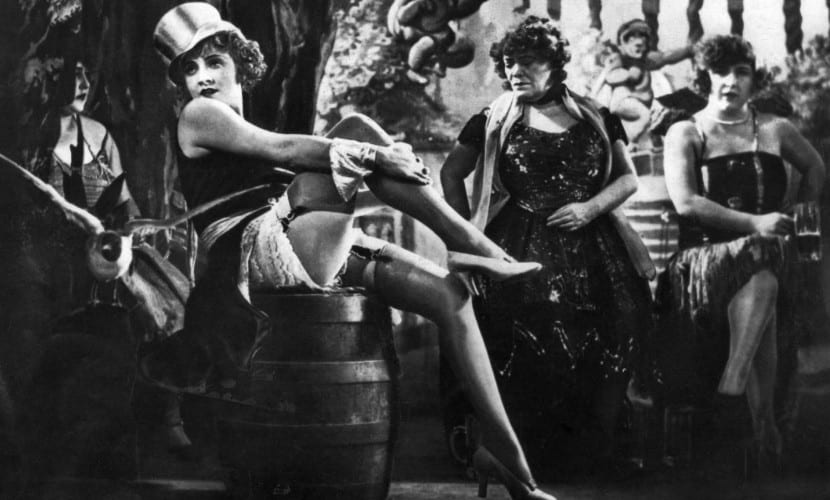
'Der blaue Engel' by Josef von Sternberg (1930) - Germany In 1927, with 'The Jazz Singer', talkies came, although the films that really gave it meaning did not arrive until the early 30s. 'The Blue Angel' by Josef von Sternberg is one of the first great sound works. Adaptation of Heinrich Mann's novel 'Professor Unrath', the film narrates the descent into hell of a professor who falls into the networks of a cabaret Lola-Lola, after meeting her in "The Blue Angel", a cabaret he attends looking for his students to take away.
'The stop of the monsters'
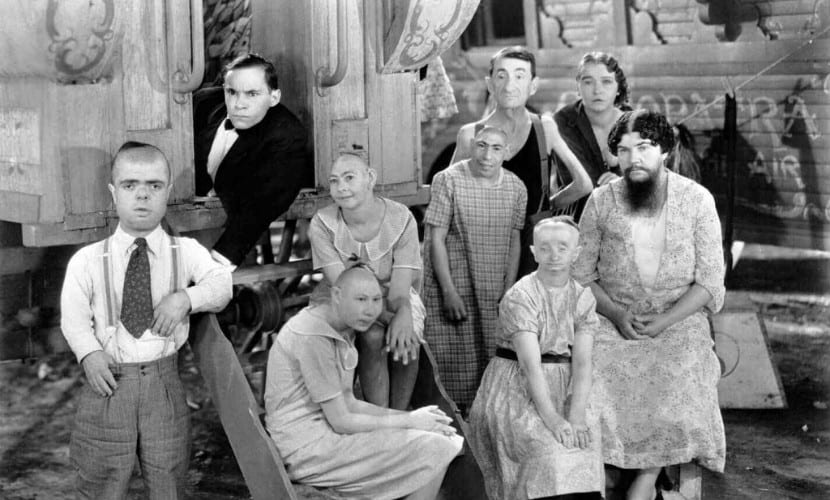
'Freaks' by Tod Browning (1932) - United States Tod Browning, a master of fantasy and horror cinema, had his masterpiece in' The monsters' stop ', the story of the deformed inhabitants of a circus. The dwarf Hans has just inherited a fortune and the contortionist Cleopatra seeks to seduce him to steal everything and for her plan she will have the help of Hercules, the strongman. One of the first cult films in history and a benchmark of genre cinema.
'Goodbye to guns'

'A Farewell to Arms' by Frank Borzage (1932) - United States The first version of 'Farewell to Arms', the one filmed by Frank Borzage, is one of the most representative films of classic Hollywood cinema 30 the years. 'Farewell to Arms is about the adaptation of the homonymous novel by Ernest Hemingway which tells the story of Frederick, an American journalist who voluntarily enlisted in the Italian Ambulance Corps during the First World War in order to follow events closely. When he is injured he ends up in a hospital where he falls in love with a British nurse named Catherine.
'Zero in conduct'
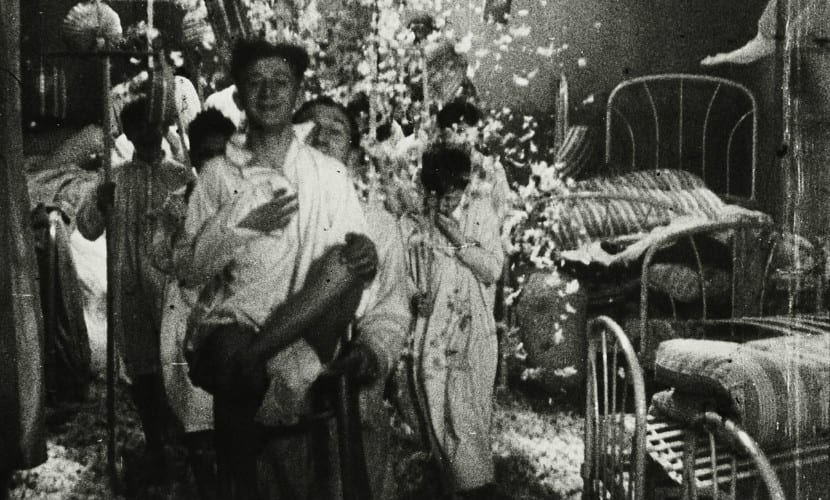
'Zéro de conduite: Jeunes diables au collège' by Jean Vigo (1933) - France French Jean Vigo is probably the relevant director in the history of cinema with the shortest filmography, he left us four jobs after his death at age 29. 'Zero in Conduct' is a masterpiece that tells the story of four young students who rebel against the strict school regime. Film banned at the time in France for his unpatriotic message and is that this based on the childhood memories of Jean Vigo himself.
'39 steps'
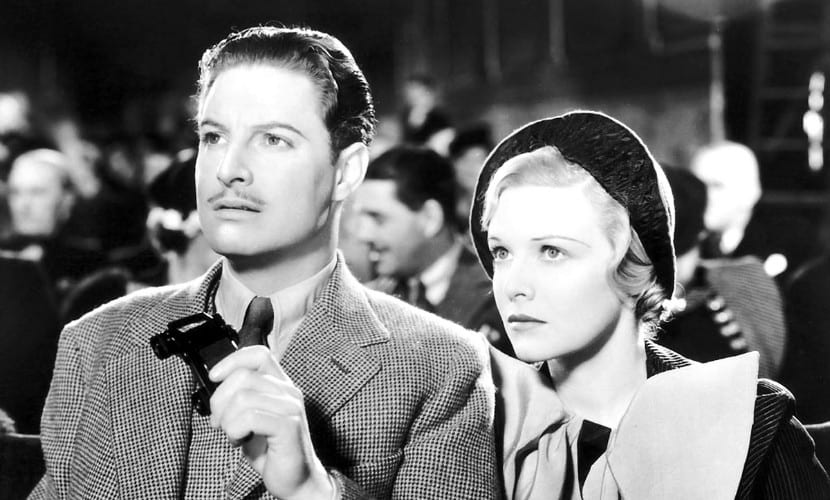
'The 39 Steps' by Alfred Hitchcock (1935) - United Kingdom In this review of the history of cinema for free, we can't forget Alfred Hitchcock, master of suspense as some label it, but undoubtedly master of cinema usually. '39 Steps' is a good example of the director's British stage. The film tells the story of Richard Hannay, who during a London music hall that ends in a fight after a gunshot, agrees to a girl's request to go to his apartment with him.
'The triumph of the will'
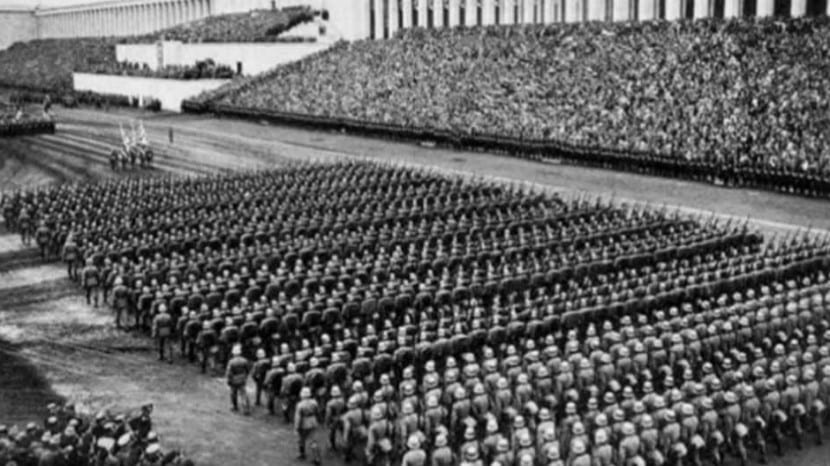
'Triumph des Willens' by Leni Riefenstahl (1935) - Germany German cinema, like the Soviet one, was also used for political propaganda, in the case of the Germans they pulled the cinematographic quality of Leni Riefenstahl, a director who left aside her ideals, she was one of the best documentary filmmakers of the time. 'The triumph of the will' is a documentary about the Nazi party congress in Nuremberg in 1934 Germany, wanting to extol the virtues of Adolf Hitler's army.
'A star has been born'
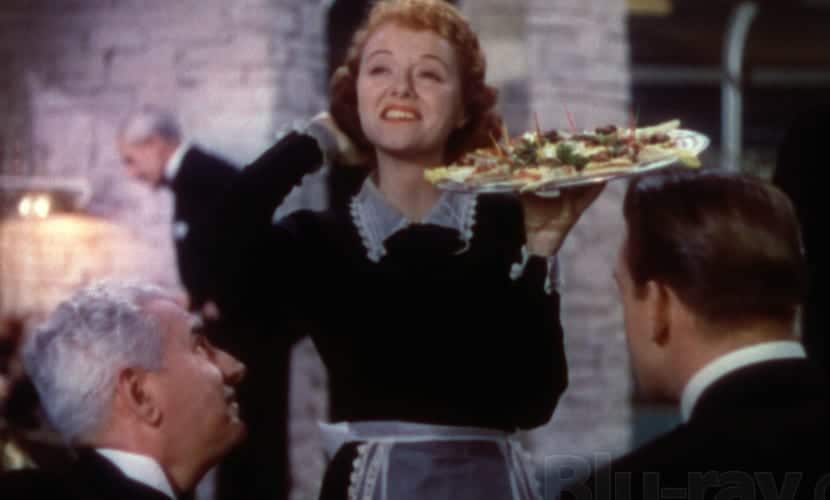
'A Star is Born' by William A. Wellman (1937) - United States Another of the references of classic American cinema is William A. Wellman. One of his most brilliant films is the first version of the film 'A Star is Born'. The film tells the story of Esther Blodgett, an actress recently arrived in Hollywood where she meets the decadent actor Norman Maine. After they marry, their relationship will be marred by her rise and his decline.
'Olympiad'

'Olympia' by Leni Riefenstahl (1938) - Germany 'Olympiad' is another of Leni Riefenstahl's outstanding works. A documentary about the Olympic Games held in Germany in 1936. Divided into two parts, the film dedicates most of its footage, specifically the integrity of the first part and something else to athletics, seeking the exaltation of the athletes' bodies through a great photograph.
'Rebeca'
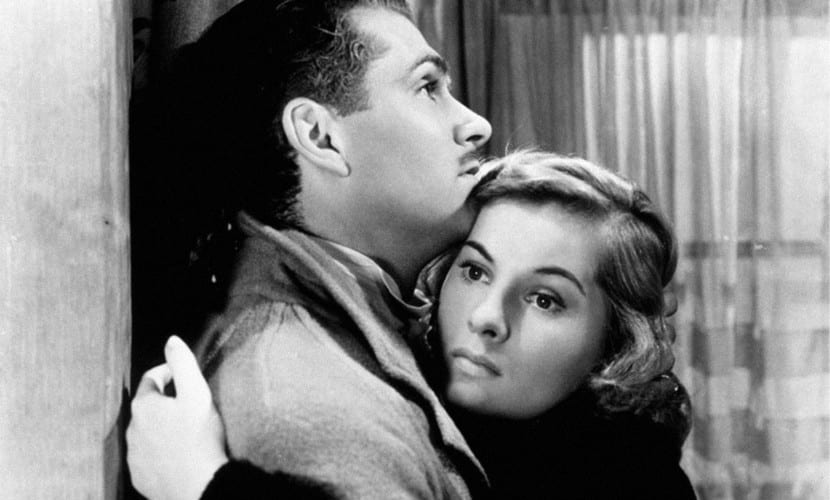
'Rebecca' by Alfred Hitchcok (1940) - United States Another Alfred Hitchcock film that stands out among those without rights is 'Rebecca', one of the director's most acclaimed films that even it earned him the Oscars for best film and best cinematography of eleven nominations, including the one for best director. The film tells the story of Maxim De Winter, who after losing his wife, Rebecca, meets a young woman with whom he later marries and goes to live on his mission to Manderley. There the new Mrs. De Winter realizes that everything is impregnated with Rebecca's presence.
'The outlaw'
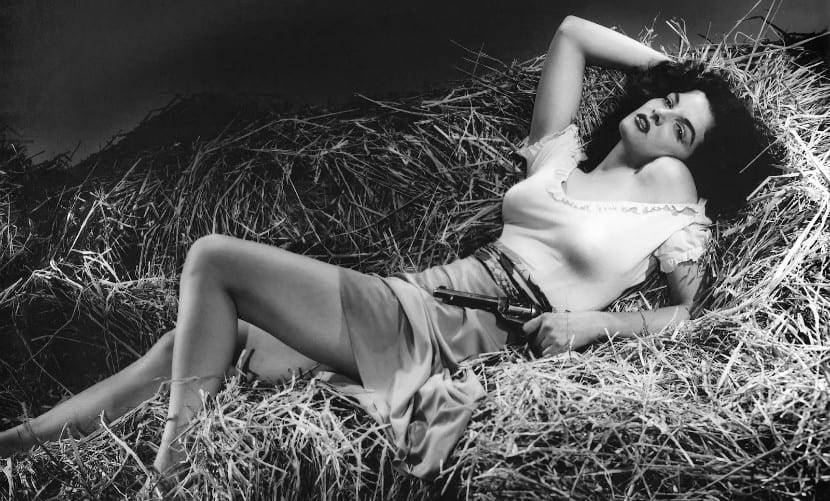
Howard Hughes's 'The Outlaw' (1943) - United States 'The Outlaw' is probably Howard Hughes's Most Outstanding Film as a Director. Whoever it was one of the most important producers in the history of cinema and one of the most extravagant personalities in Hollywood, he did not shine especially as a director, but this film is really remarkable. The film tells the story of Billy the Kid and Doc Hollyday who are on the run from Sheriff Pat Garret, with whom they were previously friends. With them they bring the mestizo Río, which makes the fights between the two friends constant.
'Duel in the sun'
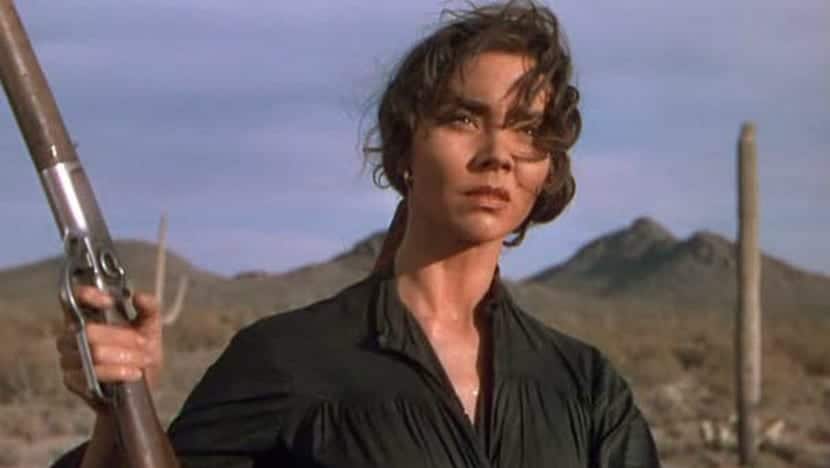
'Duel in the Sun' by King Vidor (1946) - United States Finally, one of the works by King Vidor, another of the masters of American cinema. "Duelo al sol" is one of his most outstanding works and tells the story of Pearl Chavez, a young mixed race who is sent to live on the ranch of the strict Senator McCandless in Texas. There the beautiful girl draws the attention of the senator's two sons, who will compete for her love.
What do you think of this selection? Do you find any missing? Have you seen all these movies? If you haven't, we recommend that you do so.